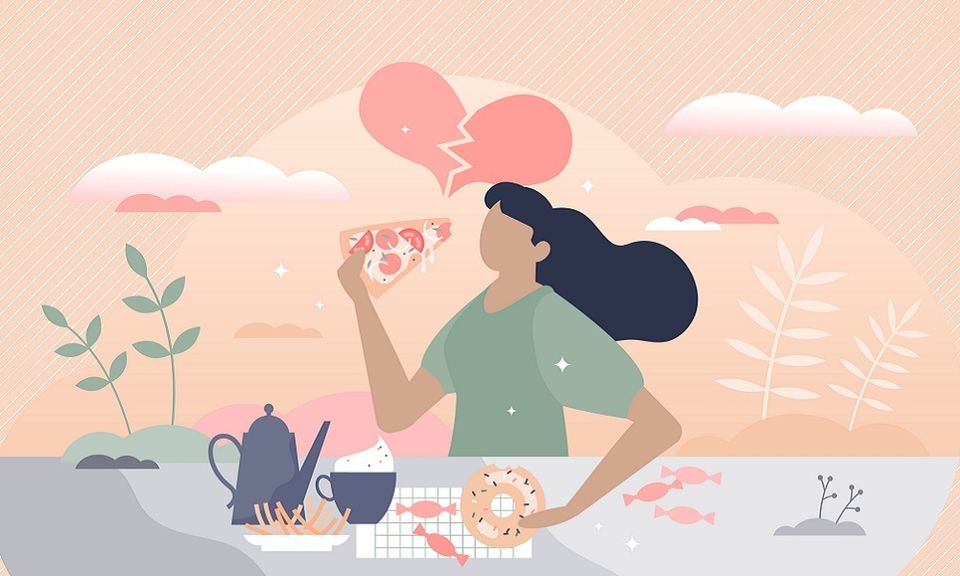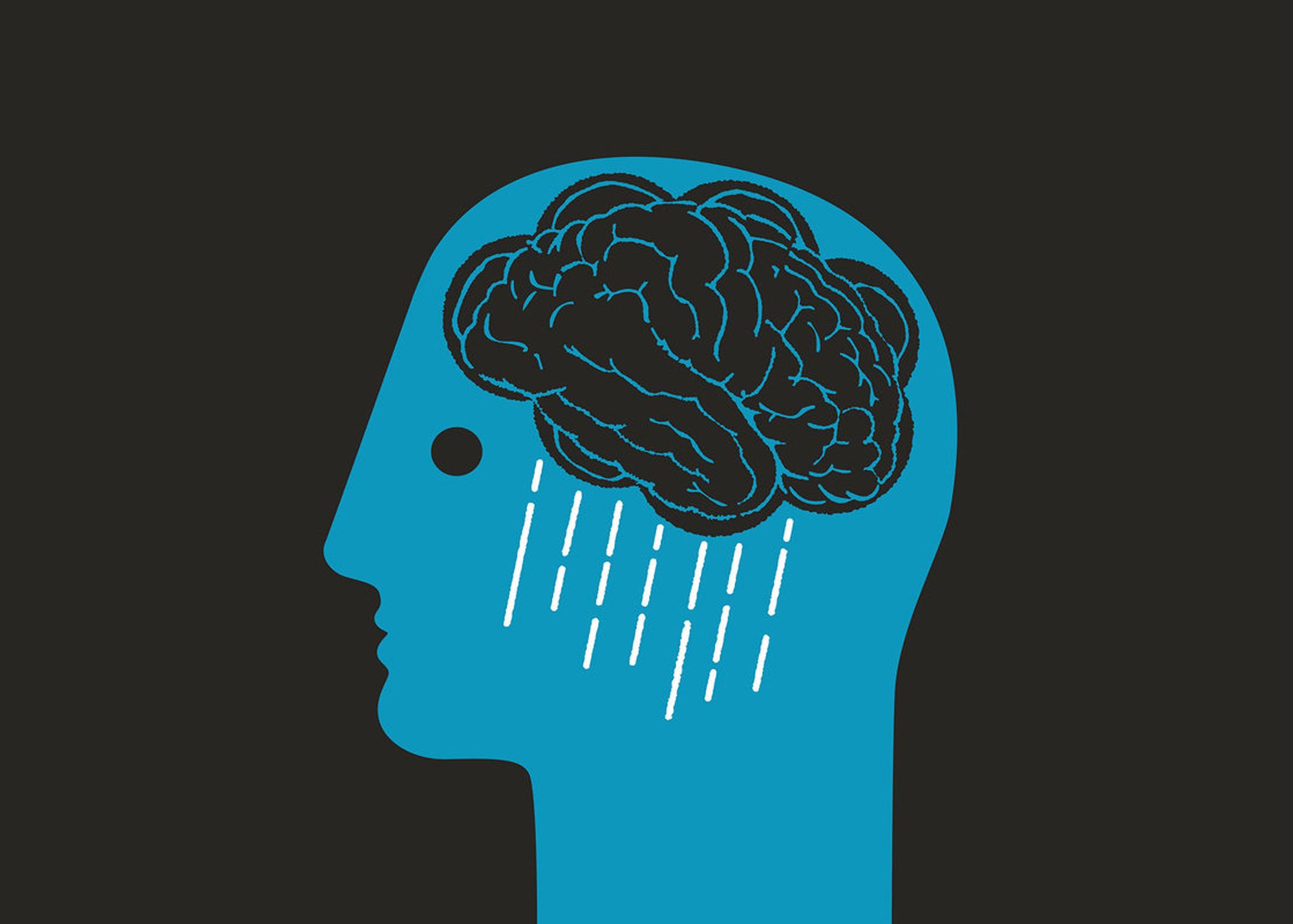The Science and Psychology of Stress Eating: Why We Do It and How to Break the Cycle

We've all been there: after a long, stressful day, we find solace in a tub of ice cream or a bag of chips. For others, the mere thought of food during stressful times is nauseating. But why do some of us turn to food for comfort while others shun it?
Let's dive deep into the science and psychology behind stress eating and stress-induced food avoidance.
The Role of Cortisol
Cortisol, often dubbed the "stress hormone," plays a pivotal role in how our body responds to stressful situations. Let's break down its involvement in stress eating:
- Production and Release: When we encounter a stressful situation, our adrenal glands, located atop our kidneys, produce and release cortisol into the bloodstream. This is part of the body's fight-or-flight response, preparing us to either confront or flee from the threat.
- Appetite Stimulation: One of cortisol's many functions is to replenish the body's energy stores. It signals the brain to increase appetite, ensuring we have enough fuel to handle the stressor. This is why, after a particularly taxing day, we might find ourselves hungrier than usual.
- Cravings for High-Calorie Foods: Cortisol doesn't just make us hungry; it makes us crave specific types of foods. Sugary and fatty foods are high in calories, providing quick energy. From an evolutionary standpoint, our ancestors needed these calorie-dense foods to face immediate threats, like escaping from predators. In modern times, while we might not be running from wild animals, our body still craves these foods as a quick energy source to tackle stress.
Blood Sugar Levels and Stress
The relationship between stress and blood sugar levels is intricate and plays a significant role in our eating behaviors:
- Immediate Spike: When faced with stress, our body needs immediate energy. To provide this, it releases stored glucose from the liver into the bloodstream, leading to a spike in blood sugar levels. This gives us that initial "rush" of energy to handle the situation.
- Insulin's Role: Insulin, a hormone produced by the pancreas, helps cells absorb this glucose for energy. However, chronic stress can make our cells less responsive to insulin, a condition known as insulin resistance. When this happens, glucose remains in the bloodstream, leading to sustained high blood sugar levels.
- The Rapid Drop: After the immediate threat or stressor has passed, our body's insulin response can cause a rapid decrease in blood sugar levels. This sudden drop triggers feelings of hunger and fatigue, prompting us to eat to restore our energy levels. It's akin to the "crash" some people feel after consuming a lot of sugar.
- The Cycle Continues: If we continually turn to high-sugar foods during stressful times, it can create a feedback loop. The sugar provides a quick energy boost, followed by a crash, leading to more sugar consumption. Over time, this can contribute to unhealthy eating patterns and potential health issues like type 2 diabetes.

By being aware of how our body reacts to stress, we can make more informed choices about how to nourish it during challenging times.
The Psychology of Stress Eating: Delving Deeper

Comfort and Nostalgia
The emotional connection between food and our past is profound. Here's a closer look at how comfort and nostalgia play into stress eating:
- Emotional Anchors: Foods often act as emotional anchors, tethering us to specific memories or feelings. Think about the warmth of freshly baked cookies on a cold day or the joy of sharing a pizza with friends during a sleepover. These foods become intertwined with feelings of safety, love, and happiness.
- Brain Chemistry: When we consume foods that we associate with positive memories, our brain releases neurotransmitters like dopamine and serotonin. These "feel-good" chemicals enhance our mood, providing a temporary escape from the stress we're experiencing.
- Regression to Safety: In times of stress, we may subconsciously regress to periods in our lives when we felt safe and cared for. Childhood, for many, is a time of fewer responsibilities and worries. By consuming foods from our past, we momentarily transport ourselves back to those simpler times.
Control and Autonomy
In a world that often feels chaotic, food can become a realm of personal agency. Here's how:
- Regaining Power: When external factors seem overwhelming, and we feel powerless, making choices about what we eat can be a way to regain a sense of control. It's a tangible action, a decision we get to make irrespective of the chaos around us.
- Predictability in Food: Unlike the unpredictability of life, food offers consistency. We know how a particular dish will taste, and this predictability can be comforting. It's one less uncertainty in a sea of unknowns.
- Self-soothing Mechanism: Just as a child might have a favorite toy or blanket that provides comfort, adults can use food as a self-soothing mechanism. It's a way to care for oneself, even if momentarily.
Avoidance and Distraction
Using food as a diversion from life's challenges is a common coping mechanism. Here's why:
- Temporary Escape: Engaging in the act of eating—choosing food, preparing it, savoring its flavors—can divert our attention from whatever is causing stress. For those moments, our focus shifts from the problem to the plate.
- Sensory Overload: The act of eating engages multiple senses—taste, smell, sight, and texture. This sensory engagement can be so overwhelming that it pushes stressful thoughts to the background.
- Delaying Confrontation: Sometimes, the mere thought of dealing with a stressful situation can be paralyzing. By choosing to eat, we give ourselves an excuse to delay facing the issue. "I'll deal with it after dinner" becomes a way to buy time, even if it's just a brief respite.
The psychology of stress eating is multifaceted, rooted in both our personal histories and innate human behaviors.
Recognizing these psychological triggers is crucial in developing healthier coping strategies and fostering a more balanced relationship with food.
Stress-Induced Food Avoidance
Fight or Flight Response
The "fight or flight" response is an ancient and instinctual reaction to perceived threats. Here's how it ties into food avoidance during stress:
- Body's Prioritization: When faced with immediate danger or a high-stress situation, the body prioritizes functions that will help it confront or escape the threat. Digestion, which is energy-consuming and not immediately essential, gets put on the back burner.
- Diversion of Blood Flow: During the fight or flight response, blood flow is redirected towards vital organs and muscles that can help us respond to the threat. Organs involved in digestion, like the stomach and intestines, receive less blood, leading to reduced digestive activity.
- Suppression of Hunger Hormones: Ghrelin, often referred to as the "hunger hormone," signals the brain to initiate feelings of hunger. During acute stress, the release of this hormone can be suppressed, leading to a decreased appetite.
Emotional Overwhelm
Emotional responses to stress can be just as powerful, if not more so, than physical ones. Here's how intense emotions can lead to food avoidance:
- Body's Protective Mechanism: When we're overwhelmed with emotions, our body might interpret the added task of digestion as an unnecessary burden. Avoiding food becomes a way to prevent further strain on an already taxed system.
- Association of Food with Discomfort: For some, stress can lead to physical symptoms like stomachaches or nausea. If these feelings are associated with eating, the brain might start to see food as a source of discomfort, leading to avoidance.
- Loss of Joy in Eating: Stress can dampen the pleasure derived from activities we usually enjoy, including eating. Foods that once brought joy might now seem bland or unappetizing.
- Overwhelm Leads to Shutdown: Just as a computer might freeze when given too many tasks, our body and mind can "shut down" when overwhelmed. The thought of choosing, preparing, and eating food might seem like too much to handle, leading to avoidance.
In understanding stress-induced food avoidance, it's essential to recognize that our body is always trying to protect us. Whether it's preparing to face a threat or shielding us from further emotional strain, these reactions are rooted in self-preservation. However, prolonged food avoidance can have health implications, so finding coping strategies and seeking support when needed is crucial.

Breaking the Stress Eating Cycle
1. Mindfulness and Meditation
- Understanding Mindfulness: Mindfulness is the practice of being fully present and engaged in the current moment, without judgment. When applied to eating, it means truly experiencing the act of eating, from the taste and texture of the food to the sensations of fullness.
- Benefits of Meditation: Meditation, a form of mindfulness practice, has been shown to reduce cortisol levels, the stress hormone responsible for increased appetite. Regular meditation sessions can help in managing and reducing overall stress, making stress eating less likely.
- Mindful Eating Practices: This involves savoring each bite, eating slowly, and paying attention to feelings of fullness. By doing so, we can better differentiate between emotional hunger and physical hunger.
2. Healthy Snacking
- Understanding Cravings: Cravings are often our body's way of signaling a need, but not always for the unhealthy foods we might desire. By understanding the underlying need, we can address it in a healthier way.
- Nutrient-Dense Choices: Opting for snacks like nuts provides essential fats and proteins, fruits offer natural sugars and vital vitamins, and yogurt can be a source of probiotics and calcium. These options not only satisfy cravings but also nourish the body.
- Preparation is Key: Having healthy snacks readily available, like pre-cut veggies or a handful of almonds, can make it easier to make healthier choices when stress hits.

3. Seek Support
- The Power of Communication: Talking about our feelings and stressors can provide clarity and perspective. Sometimes, just the act of verbalizing our emotions can reduce their intensity.
- Professional Help: Therapists or counselors, especially those specializing in eating disorders or behavioral therapy (reach out to me if you need help), can provide tools and strategies to cope with stress without turning to food.
- Support Groups: Joining support groups, whether online or offline, can provide a sense of community. Knowing you're not alone in your struggles can be comforting.
4. Exercise
- Natural Mood Enhancer: Exercise stimulates the release of endorphins, neurotransmitters that act as natural painkillers and mood elevators. This can counteract feelings of stress or sadness without the need for food.
- Regulation of Stress Hormones: Regular physical activity can help balance cortisol levels, reducing the physiological drive to eat when stressed.
- Distraction and Focus: Engaging in physical activity can also serve as a distraction from stressors and provide a sense of accomplishment.

5. Establish a Routine
- Predictability Amidst Chaos: In a world full of uncertainties, having a set routine, especially around meals, can provide a sense of normalcy and control.
- Planning Ahead: Planning meals and snacks can reduce impulsive eating decisions driven by stress. Knowing what you'll eat next can also reduce anxiety around food.
- Consistency is Key: Eating at consistent times helps regulate hunger hormones and ensures that we're eating out of genuine hunger rather than emotional triggers.
Breaking the stress-eating cycle requires a combination of self-awareness, support, and proactive strategies. By understanding the root causes and implementing these practices, one can foster a healthier relationship with food and better manage life's stresses.
Conclusion
Stress eating is a complex interplay of biology and psychology. While it's natural to seek comfort in food occasionally, it's essential to recognize when it becomes a coping mechanism.
By understanding the reasons behind stress eating and implementing tangible solutions, we can pave the way for a healthier relationship with food and a more resilient response to stress.
Remember, it's not about perfection but progress. Every small step you take towards understanding and managing your stress eating habits is a step closer to a healthier you.
5 Reflection Questions:
- When do I most often find myself stress eating? Is it during specific times of the day, after certain events, or perhaps when I'm with particular people?
- What foods do I typically crave when I'm stressed? Are they linked to specific memories or feelings?
- How do I feel after stress eating? Is there immediate relief followed by guilt or regret, or do I feel satisfied and comforted?
- What activities or practices, other than eating, make me feel better when I'm stressed? Could I turn to one of these the next time I feel the urge to stress eat?
- How often do I take a moment to truly savor and enjoy my food, without distractions? Could practicing mindfulness during meals change my relationship with food?